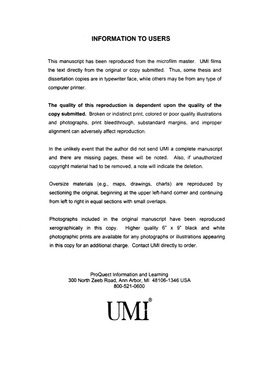| dc.contributor.advisor | Kosmopoulou, Georgia, | en_US |
| dc.contributor.advisor | Dunne, Timothy, | en_US |
| dc.contributor.author | De Silva, Dakshina Garfield. | en_US |
| dc.date.accessioned | 2013-08-16T12:18:34Z | |
| dc.date.available | 2013-08-16T12:18:34Z | |
| dc.date.issued | 2002 | en_US |
| dc.identifier.uri | https://hdl.handle.net/11244/463 | |
| dc.description.abstract | This study investigates bidder behavior in road construction procurement auctions held by the Oklahoma Department of Transportation (ODOT) in the period January 1997 to August 2000. The first essay, "An Empirical Analysis of Entrant and Incumbent Bidding in Road Construction Auctions, " deals with differences in bidding behavior between incumbent and entrant firms in procurement auctions. The study finds that entrants bid more aggressively and win auctions with significantly lower bids than do incumbents. As a result, the forgone surplus is greater for entrants than for incumbents. The differences in bidding patterns are consistent with an asymmetric model of auctions, in which the distribution of an entrant's costs exhibits greater dispersion than that of an incumbent. The characteristics of rival bidders also have an effect on bidding behavior. The tougher the average rival, the lower the bid and the lower the winning bid. | en_US |
| dc.description.abstract | The second essay, "Sequential Bidding in Road Construction Auctions, " investigates differences in bidding patterns between morning and afternoon auctions. Empirical evidence from construction contracts suggests that prices are not statistically different between morning and afternoon sessions and that there is no statistically significant difference in the probability of submitting a bid between winners and losers of morning auctions. In afternoon auctions, a large part of the adjustment in bidding behavior is induced by additional asymmetries that arise due to release of information about prices and bids in morning auctions. As expected, the more competitive the set of rivals a firm faces, the more aggressively it bids. Even though the difference in the probability of submitting a bid is not statistically significant between winners and losers of early auctions, losers make a much larger adjustment in their afternoon bids relative to winners. | en_US |
| dc.description.abstract | In the third essay, "Synergies in Recurring Procurement Auctions: An Empirical Investigation, " I examine the impact of synergies on bidder behavior in recurring road construction procurement auctions. The projects are spatially correlated. When bidders with potential synergies participate, their probability of bidding and winning increases and they bid more aggressively. Further, firm efficiencies increase the probability of bidding and winning, as does the aggressiveness of bids. Finally, a firm that is capacity unconstrained will bid more aggressively than one that is capacity constrained. | en_US |
| dc.format.extent | x, 100 leaves : | en_US |
| dc.subject | Oklahoma. Department of Transportation Procurement. | en_US |
| dc.subject | Government auctions Oklahoma. | en_US |
| dc.subject | Public contracts Case studies. | en_US |
| dc.subject | Public contracts Oklahoma. | en_US |
| dc.subject | Government auctions Case studies. | en_US |
| dc.subject | Economics, General. | en_US |
| dc.title | Asymmetries in procurement auctions. | en_US |
| dc.type | Thesis | en_US |
| dc.thesis.degree | Ph.D. | en_US |
| dc.thesis.degreeDiscipline | Department of Economics | en_US |
| dc.note | Source: Dissertation Abstracts International, Volume: 63-03, Section: A, page: 1046. | en_US |
| dc.note | Advisers: Timothy Dunne; Georgia Kosmopoulou. | en_US |
| ou.identifier | (UMI)AAI3045841 | en_US |
| ou.group | College of Arts and Sciences::Department of Economics | |
